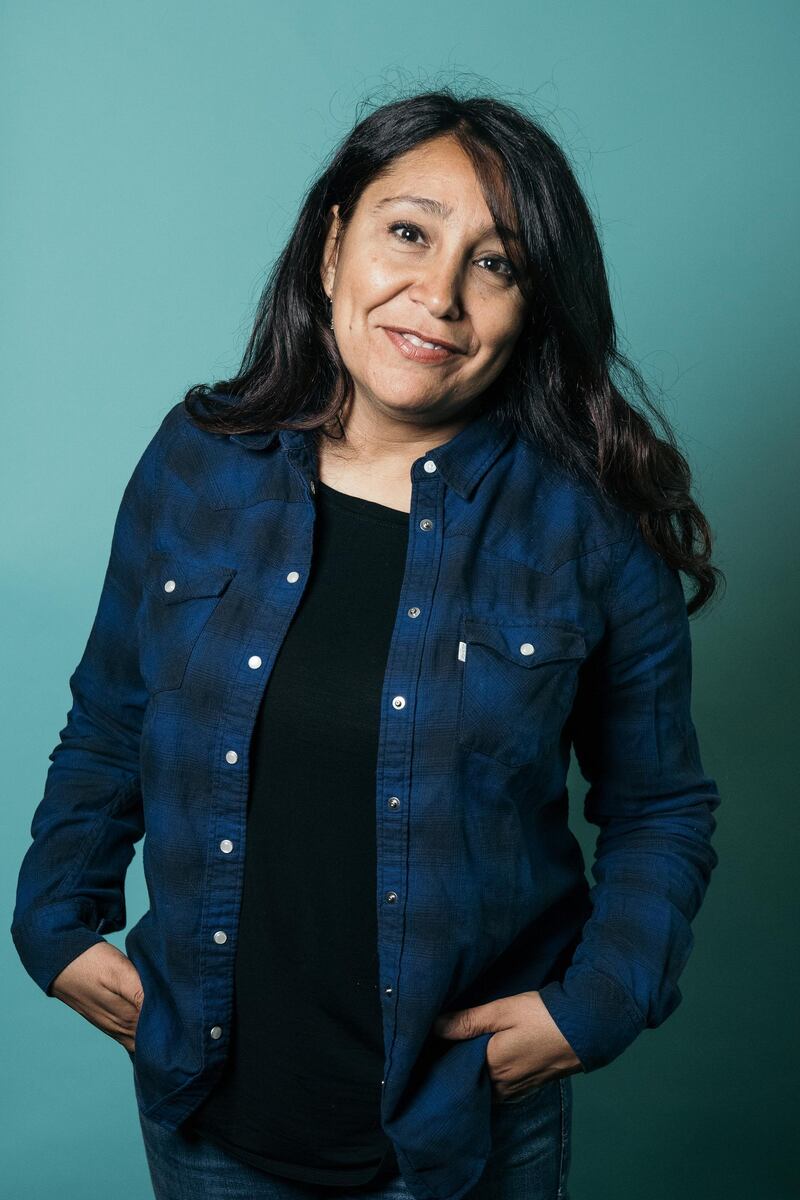After making it in Hollywood, Saudi director Haifaa Al Mansour is determined to bring her talents back to the region, a plan propelled forward after winning the sixth IWC Filmmaker's Award for Miss Camel at Dubai International Film Festival this weekend.
The story of a Saudi camel who dreams of competing in Abu Dhabi's annual camel beauty contest won over the jury, led by Australian actress Cate Blanchett.
The win provides US$100,000 (Dh367,315) towards developing Miss Camel, which Al Mansour wants to produce using stop-motion animation. She and her American husband, Bradley Niemann, who are now based in Los Angeles with their two children, have been working on the script for the past two years. She spoke to The National before this week's announcement that cinemas in Saudi Arabia will reopen early next year, as part of Crown Prince Mohammed bin Salman's Vision 2030.
“Writing is such a lonely place, right?” Al Mansour says. “You don’t know if what you are doing is right or wrong, so after that hard work, it’s amazing to see that validation. It’s really gratifying, and to know you are on the right track, and hopefully that will give us some money to start doing the character design and the environment design, to take it to the next level.”
The project tells the story of a feisty Saudi camel who “thinks she’s cut for bigger things” and plots to travel from Riyadh to the UAE capital so she can become Miss Camel.
"Camels are our pets, you know, we love them and we decorate them and dress them," Al Mansour says. "So she is trying to find a way to leave Riyadh and go to Abu Dhabi. She finds a girl, who is also trapped in a situation where her parents want to marry her off early, and she wants to go into the arts, so together the two of them take a journey to go from Riyadh to Abu Dhabi."
The film is about self-discovery and female empowerment, two themes Al Mansour has explored in earlier work, but it is also a comedy that celebrates the region’s wildlife, art and music. The goal is to explain regional culture to outsiders, while giving children something to watch where they can see themselves in the characters, the landscape and the story.
“There isn’t a lot of animation [from this region],” Al Mansour explains. “We also don’t have a lot of literature, for children, and it’s so lacking that even I can’t introduce my culture. My husband is American, and my kids live in LA, and I can’t introduce them to a lot of
my culture.”
Al Mansour hopes to see the project completed by 2020. As for where it will materialise, the choice of animation studio depends on whether they can secure future financing in the United States or Europe.
In the meantime, Al Mansour has now made the leap to Hollywood that she held out for after her breakthrough first feature, 2012's Wadjda. That film, about an 11-year-old Saudi girl who dreamed of owning a bicycle, went on to critical and commercial success, becoming Saudi Arabia's first-ever entry to the Academy Awards. She purposefully took her time finding projects after the success of Wadjda, which remains the only feature film made in Saudi Arabia by a Saudi woman.
"After I finished Wadjda, it was easy for me to make another Saudi film, but I really wanted to take time and explore other markets," she explains. "We don't have an industry in Saudi… so it took longer for me to make my second film. I wanted to advance my career, and not be limited in this region."
Her second feature film had its premiere at the Toronto International Film Festival in September, where it secured US distribution from IFC Films. Due in theatres next year, Mary Shelley is about the Frankenstein author's relationship with her first love, poet Percy Bysshe Shelley. It also features performances by several female actors: Elle Fanning plays Shelley, while Game of Thrones' Maisie Williams and Downton Abbey's Joanne Froggatt also appear.
Al Mansour is also in post-production on her third feature, Nappily Ever After, a romantic comedy starring Sanaa Lathan.
Although she says that she runs up against Hollywood sexism that still favours middle-aged white directors – "we're looking for someone more established", she explains, is the code when getting a rejection – Al Mansour is never one to make excuses.
“I’m a firm believer in hard work, that pays off. There are obstacles, there will be, I don’t know, gender and race and all that, sometimes you will be limited,” she says. “But if you give in that is wrong. You should always start to fight and always prepare not to think about that, it’s not important. The importance is the task.”
__________________
Read more:
[ FAQ: Cinema in Saudi Arabia ]
[ Saudi Arabia to open cinemas for first time in 35 years ]
[ Escape to the movies: how Saudi cinema ban benefits UAE tourism ]
______________





